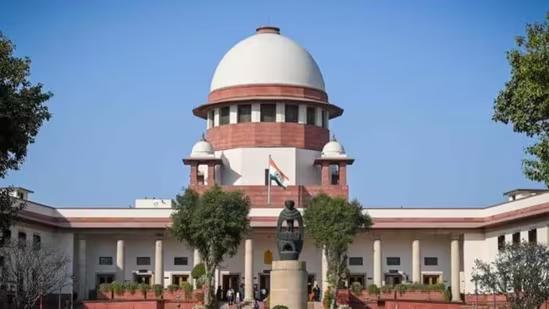
Court Can’t Grant Assent to Bills, Only Gov & Prez Can: Maha to SC
The powers of the legislative and executive branches of the government have been a topic of debate in India for a long time. In a recent development, the Maharashtra government has argued in the Supreme Court that courts cannot accord assent to bills and only the Governor and President have the power to do so. This submission was made by Senior Advocate Harish Salve, representing Maharashtra, during a hearing on a presidential reference regarding whether the court could impose timelines for the Governor and President to deal with bills passed by state Assemblies.
The presidential reference was filed by the Centre, seeking the Supreme Court’s guidance on whether the court could fix a time limit for the Governor and President to act on bills passed by the state assemblies. The Centre had sought the court’s intervention after several instances where Governors and Presidents had delayed in signing or returning bills, leading to uncertainty and delay in the law-making process.
In its submission, the Maharashtra government emphasized that the power to accord assent to bills lies solely with the Governor and President, and the court cannot usurp this power. The government argued that the court’s role is limited to interpreting the Constitution and laws, and it cannot interfere in the legislative and executive functions of the government.
Salve, representing Maharashtra, cited several precedents and argued that the court’s jurisdiction is limited to determining the validity of a law and not granting or withholding assent to a bill. He emphasized that the court’s role is to ensure that the law is in accordance with the Constitution, but it cannot dictate how the law is to be made.
The Maharashtra government’s submission was supported by the Centre, which also argued that the court cannot impose timelines on the Governor and President. The Centre contended that the Governor and President have their own discretion in dealing with bills, and the court cannot dictate how they exercise that discretion.
The Supreme Court, while hearing the case, has sought to balance the powers of the legislative, executive, and judicial branches of the government. The court has emphasized that while it has the power to review the validity of laws, it cannot interfere in the legislative process or dictate how laws are to be made.
The court has also sought to clarify the role of the Governor and President in the law-making process. The court has asked the Centre and the states to provide information on the number of bills that have been pending with the Governor and President, and the reasons why they have been delayed.
The hearing of the case is ongoing, and the Supreme Court is expected to deliver its verdict soon. The outcome of the case is likely to have significant implications for the balance of powers between the legislative, executive, and judicial branches of the government.
Conclusion
The Maharashtra government’s submission in the Supreme Court highlights the importance of maintaining the balance of powers between the legislative, executive, and judicial branches of the government. The court’s role is limited to interpreting the Constitution and laws, and it cannot interfere in the legislative and executive functions of the government. The powers of the Governor and President to accord assent to bills are also limited to their discretion, and the court cannot dictate how they exercise that discretion.
As the case continues, it is essential for the court to maintain the balance of powers and ensure that the legislative, executive, and judicial branches of the government function within their respective domains. The outcome of the case is likely to have significant implications for the functioning of the government and the balance of powers between the different branches of government.
Source






